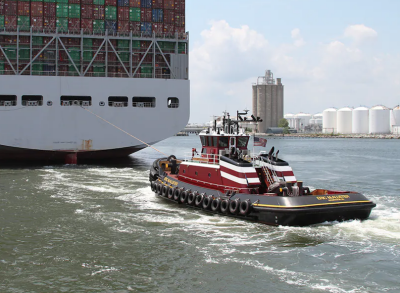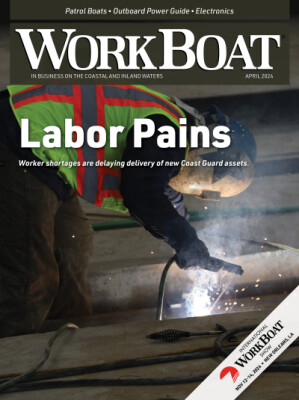It’s been three months since tough new standards kicked in for the North American and Caribbean Emission Control Area (ECA), and so far the Coast Guard hasn’t found any deliberate attempts to skirt the regulations.
Violations can be costly. The Environmental Protection Agency (EPA), which enforces the rule along with the Coast Guard, can assess a civil penalty of $25,000 per violation per day, EPA said. Recordkeeping penalties can range from $2,500 to $15,000 per violation, per day, “depending on egregiousness.”
The Coast Guard has had 25-30 documented cases of compliance problems and issued deficiency notices, a spokesman said. Some vessels were boarded and others notified the COTP about an ECA problem before coming into port. “Most of the issues have been related to mechanical situations or, for example, the required fuel was not able to be obtained before the ship came into the U.S. port,” the spokesman said.
And fuel is the key for vessels — both U.S.- and foreign-flag — operating in ECA waters.
The ECA, which extends 200 nautical miles from the U.S. and Canada and around Hawaii’s major islands and 50 nautical miles from the Caribbean coasts, requires fuel with a 0.1% sulfur limit. Before Jan. 1, sulfur content was capped at 1%.
Ships built after Jan. 1, 2016, that operate in an ECA must use advanced emission control technologies (Tier 3 NOx engine emission requirements). Steamships are exempt until 2020.
Propulsion losses have resulted from fuel changeovers to comply with ECA. So, the Coast Guard advised, “Advanced planning and preventive maintenance are critical to the proper operation of a vessel’s main engine and prevention of losses of propulsion.”
The EPA has not assessed any penalties under the new standard, a spokesman said. The Coast Guard will consider three factors when referring a case to EPA: whether someone is a repeat offender, whether the violation is “particularly egregious,” and whether a violation involves fuel oil sampling.
Check out the EPA penalty policy.




